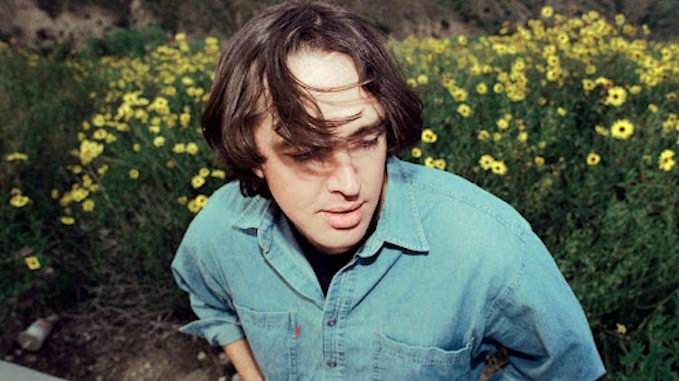Welcome to our new Gateways column, where Paste writers and editors explore the taste-defining albums, artists, songs or shows that proved to be personal “gateways” into a broader genre, music scene or an artist’s catalogue at-large—for better or worse.
“I love a good banjo,” my friend Mel told me emphatically over steaming mugs of tea. Her admission startled me. My memories of the banjo—with its harsh, twangy notes—carried me back over the ocean, placing me right back in the country that I had run from deliberately.
I left the United States after college out of my impulse to escape. I wanted to leave anything unsavory behind me—scary exes, bad American politics, strained family relationships, the uncertainty of young adult life—and make a clean transition into British society. A simple one-to-one trade. In truth, I was attempting to outrun sprawling concepts of heritage and identity, which would always outpace me. Until Mel spoke the word banjo, I didn’t realize how much I associated those fears around its particular sound.
Banjo, within the context of my personal history, sounded like shame. I remembered its jolting ability to shock the listener like an iPhone alarm in the middle of a sermon. I associated it with surreptitiously hiding in Cracker Barrel stores in flyover country, embarrassed of my loud Midwestern extended family, while oldie classics piped through the tinny speakers.
So, it shocked me to hear that my British friend, whose own velvety accent seemed incompatible with an admiration of scratchy Southern riffs, loved the banjo. Rather than plunge me straight into Gregory Alan Isakov’s banjo-heavy discography, Mel spun his acoustic debut: songs for October. Isakov’s songs have a gentle yet hard-earned comfort to them. Like a pair of 501 Levis broken in by days working on the farm, you enjoy Isakov’s lyrics for their unfussy yet sturdy nature. In the first Isakov song I heard, “black & blue,” he boils the bones of heartbreak for stock: “I miss the taste of you, red hearts and the dust of June.” His music feels totemic, each image or emotion solid enough to string on a chain around your neck.
As I eased into the record, I unclenched my discomfort for this soundscape. I gave his gentle licking guitar a chance as he, in turn, sang “And I try though, I try though.” Isakov’s music began to build as a soundtrack to my friendship with Mel, too. I placed musical trust in her to lead me back home, in the same way songs for October cultivated a sense of belonging in Somerset that looped me back to my origins. We’d coast down the thin country lanes of Somerset Levels to the sound of “freeway searching,” whose lyrics muse about the Georgia highway, while the Mendip hills rose from the fog. The cognitive dissonance worked as a tool to understand both old and new places at the same time; the neck of Isakov’s guitar formed a bridge on which I could teeter back and forth over the Atlantic.
Isakov’s discography, lyricism and personal history welcome serpentine twists and turns. As I recognized the disordered way in which I had imprinted an American sound onto an English space, while using an English relationship to reconcile my American identity—each lever being pulled for accidental resolution of its opposite—Isakov was there to stop the gap. His own self identification as a farmer first, musician second embraced a backdoor approach for artistic revelation. Born in South Africa but an American since childhood, his interpretation of the Americana sound was another welcome pivot. Everything was mutable. What could grow and be nurtured from the root won the day.
Over time, folk music became a vessel for my strange assortment of contradictions. I could let my identities be an ouroboros of sorts—self consuming, potentially self-defeating—yet ultimately be the wholest self I’ve ever been. I went from loathing what I could represent to acknowledging the power I had in curating my own cultural identity. I could approximate folk music. I could reject the idea of single authorship and accept the multiple nodes guiding Isakov’s music and my own life. Home could be many places and many people—and within me.
COVID forced an early end to my time with Mel. As she drove me back to the bus station that would begin the end of my time in England, our closing notes mirrored the last echoes of songs for October: “And I’ve been here on this precipice / And I’ve picked apart anything I bring / So we can toss our suitcase into the wind at last,” Isakov croons on the penultimate track. In the way travel recalibrates your sense of place, friendship can reorient your sense of self and hope in other people. The suitcase I brought with me is lighter. The shame is lessened. My pride can be warm-blooded like Isakov’s described “red hearts” and “golden brown” skin of August.
As it’s October, I let songs for October run on repeat. While listening to Isakov’s acoustic guitar remains a balm, I’m ready for more. Turning to his later work, I turn the volume up on banjo tracks. Hearing the music crest in “The Stable Song,” I imagine jagged edges of what I used to think banjo was—a sound that saws. Isakov’s vocals and banjo expand, and I see myself climbing the teeth of that same saw, up and up, wanting more of what I used to reject. This feels dangerous, I think to myself, even imaginatively. Let it cut me anyway.
Katherine Smith is an editorial intern and writer at Paste Magazine, and recent graduate of the University of Virginia. For a deeper dive into her current obsessions and hot takes follow her at @kat_marie_tea




